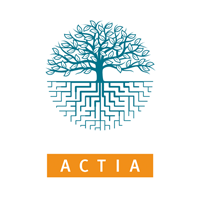The renewal of UMT SAFEMAT 22.07 for a new 5-year period (2022-2026) is the result of our collective reflection undertaken since 2020 within UMT SAFEMAT 17.09. The proposed new work program, in line with the work already undertaken, takes account of a profound change in the French and European regulatory context, and prepares for the necessary changes in European regulations on materials in contact with food to support the transition from a linear economy to a circular economy, where materials are increasingly recycled, reused and reemployed. Our positioning is rooted in engineering type approaches and is at the service of industrial sectors and consumers:
- risk analysis from the molecule to the distribution, collection and recycling system;
- development of rapid, in-situ methods for characterizing and analyzing substance transfer risks (from packaging to tank);
- incorporation of the above approaches into methods for prototyping articles, shaping processes.
Various skills tailored to the objectives sought are brought together within UMT SafeMat 22.07: analytical chemistry, physical chemistry, materials science, process engineering, multi-scale modeling and digital simulation. The UMT benefits from the consolidation and dynamism of the University of Paris-Saclay's "Agro" cluster (joint site, UMR 0782 SayFood research unit Paris-Saclay Food and Bioproduct, team Modeling and Engineering through Computation). Our ability to predict and guide technological choices associated with food packaging makes UMT SafeMat a structure of choice to support public policies and industrial strategies with complete independence.
R&D priorities
For its renewal in 2022, the UMT SafeMat 22.07 aims to enable uhealth assessment and management of packaging (i) from its material state before shaping, (ii) as a disposable, reusable or reusable finished article, (iii) through to its final collection and (iv) recycling into reusable material. Throughout the cycle, the composition of the material evolves as a result of the loss of substances (migration, decontamination), the gain of substances (absorption of food constituents, cross-contamination), and the chemical aging of materials (neo-formed substances). The gradual interweaving of recycled material loops will most likely lead to developments that are unsuspected today, given our lack of knowledge of upstream and downstream practices in the sector, and the intensity of trade between recycled material countries. With this in mind, the UMT SafeMat 22.07 anticipates and prepares tomorrow's solutions to enable efficient and economically viable implementation of the developments called for by the AGEC law and the SUP directive
.The general orientations of the UMT SafeMat 22.07 are broken down into three complementary R&D areas:
- the alimentarity of recyclates (a focus already recognized by the UMT's academic, technical and industrial partners);
- the aging of recycled, reused, reemployed, compostable materials (focus to be developed, drawing on technical expertise already present at LNE);
- engineering integrating the product-packaging pair (a focus to be federated and for which the UMT already has a contribution).
Composition
Coordinators
Jean Mario Julien, Ph.D., Research Engineer(LNE)
Sandra Domenek, Ph.D., Professor(AgroParisTech)
Scientific animators
Phuong-Mai Nguyen, Ph.D., Research Engineer (LNE)
Cédric Lyathaud, Research Engineer (LNE)
Technical resources
The main tools and devices pooled within the UMT SafeMat are presented in the table below
.|
Tools and means of calculation |
Characterization and material shaping |
Analytical chemistry |
|
Computing cluster (1200 cores) Chemometrics (PCA, ICA, multitable methods...) Materials Studio, Lammps Matlab, Octave, R Comsol Multiphysics INRAE software libraries for migration risk assessment, safe design and eco-design of packaging |
Gas permeameters Microbalances TGA / DSC Internal mixer Compression presses Pulling machines MFI (plastometer) UV/VIS, Fluo, FTIR-ATR, SEM microscopy Raman microscopy UV/climate aging chambers |
GC×GC-MS GC-MS HSGC-MS GC-FID Py-TD-GC-MS SP-ICP-MS HPLC-UV / RI /Fluo IC ICP OES / ICP-MS RMN 1H Cryogenic evaporator/concentrator |
Scientific production
Scientific articles
Works
Publications for the general public and industry players
Scientific poster presentations
TWINLOOP project (ANR AMI): GUARANTEEING SECURITY WITH DIGITAL GAMES
BUDDIE-PACK project: Reusable plastic packaging
ANR PACKSAFE project "Integrated chemical safety assessment of food contact articles"
Mass transfer controlling the safety of recycled paper and board for food contact
Evaluation of functional barriers for the widespread use of recycled plastics for contact
contact
New strategies to evaluate and manage recycled materials for food contact
Is it safe to use recycled PET for food contact without a decontamination step? Case of ABA trays
Assessment of functional barriers for the generalized use of recycled plastics for food contact
Risk Assessment of Plastic Greenhouse Films formulated by Non-Evaluated Polyaromatic Hydrocarbons
ECLA project: Efficiency of Light Waterfalls for Agriculture
Cross-contamination of packaging: mass transfer without contact
Hierarchical nanocelluloses-based materials for the elaboration of highly gas-barrier materials
Computer-aided design of responsible packaging
Prediction of diffusion and sorption properties for the circular economy
In-situ imaging of chemical contaminants in recycled paper and board
Fingerprints from GC-MS data to manage recycled streams for food contact
Preserving food and cosmetics quality: permeation of organic vapors
Methodological developments for analysis of non-intentionally added substances (NIAS)
fitness.agroparistech.fr: The European platform to learn how to develop responsible food packaging
Download documents
Partners




